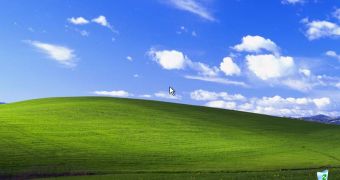Windows XP will no longer receive updates and security patches as of April 8, 2014, so the Softies are now urging everyone to dump the 11-year-old OS and move to a newer product.
Basically, Microsoft is using the security argument to show users that upgrading to Windows 7 or Windows 8 is essential, especially because an unpatched system would basically be an open door for hackers.
Recently, the tech giant has even rolled out the findings of a study claiming that staying with Windows XP is three times more expensive than buying Windows 8. “How come?” you may ask. It’s pretty simple, Microsoft says.
Many would most likely need technical support after the XP retirement date, especially because many apps would no longer work on this particular OS. As a result, the overall costs of using Windows XP will be higher than those of switching to Windows 8.
But when it comes to security, Linux is the best choice, some of our users said on Softpedia’s Facebook page. While others admitted that it would indeed be risky to keep using Windows XP beyond April 8, 2014, some of our readers have explained that open-source is the right way to go.
“I switched to Lubuntu, feels kinda similar in many ways and is much faster,” one of our Facebook fans said. “With so many making the switch to Linux (particulary Ubuntu), I guess Microsoft's feeling a little scared,” another one added.
“[Staying with Windows XP is] a gazillion times more expensive than using Linux,” a commenter noted.
In the end, Linux could indeed be a better choice, but some studies have shown that Windows is actually cheaper than its open-source rival.
The Australia-based Members Equity Bank has decided to go for Windows instead of Linux for its workstations, as an internal research revealed that the overall costs of deploying the open-source platform would be a lot higher.
“Although the alternative Linux-based platform is essentially free to deploy, based on our past experience, we knew that it would cost more to support than Windows. This made the overall costs of the two operating systems approximately the same,” ME Bank's IT expert Jem Richard said.

 14 DAY TRIAL //
14 DAY TRIAL //